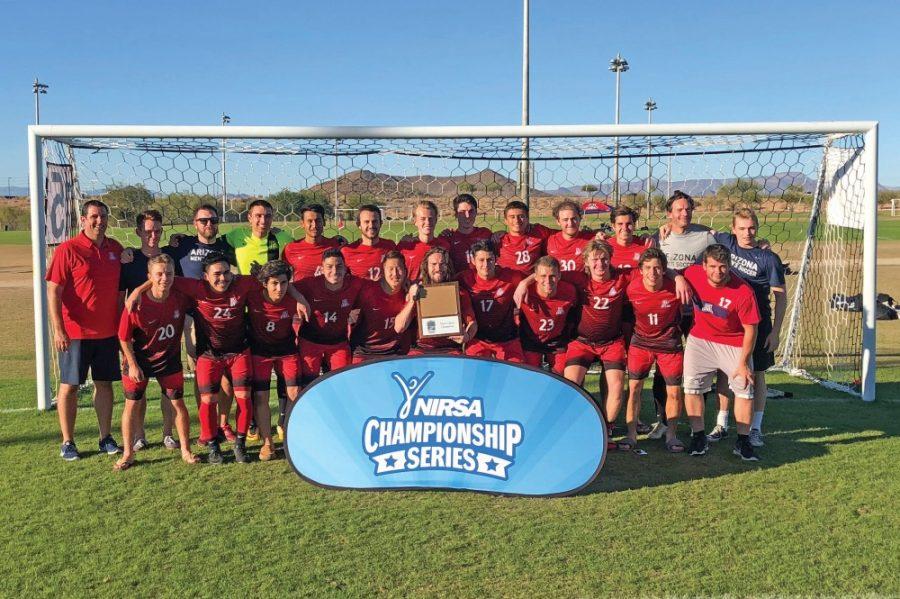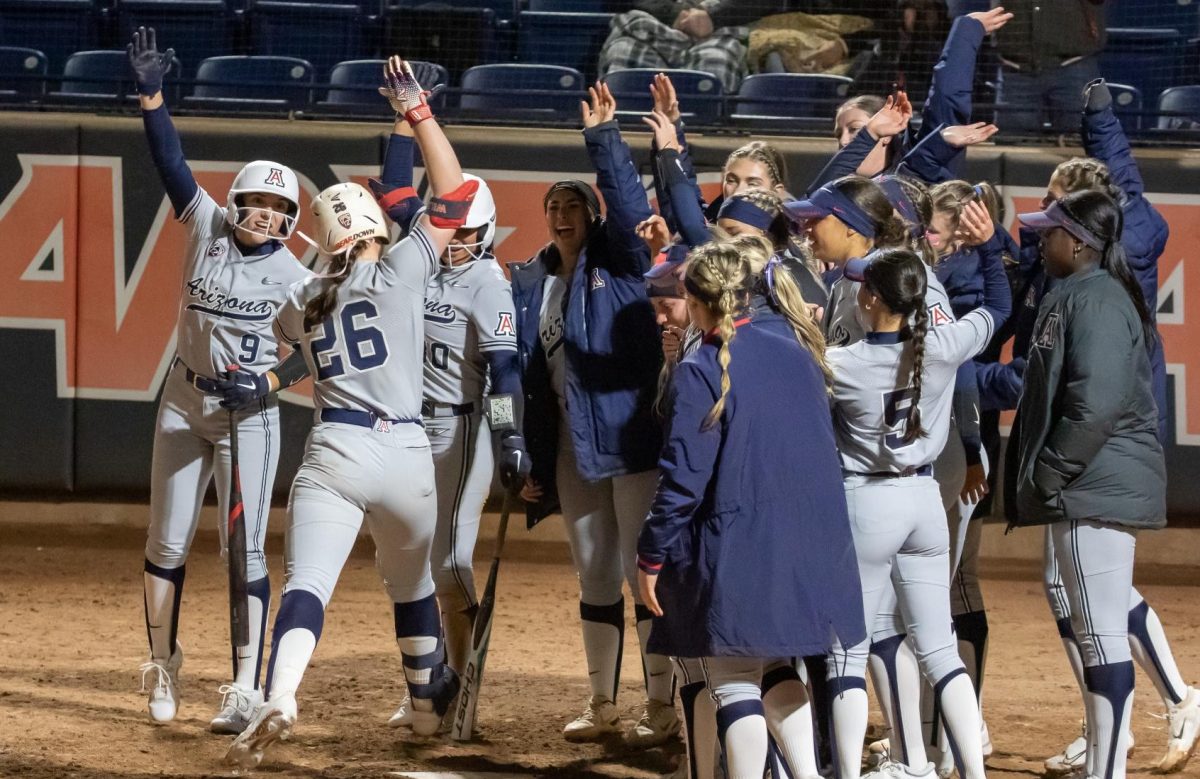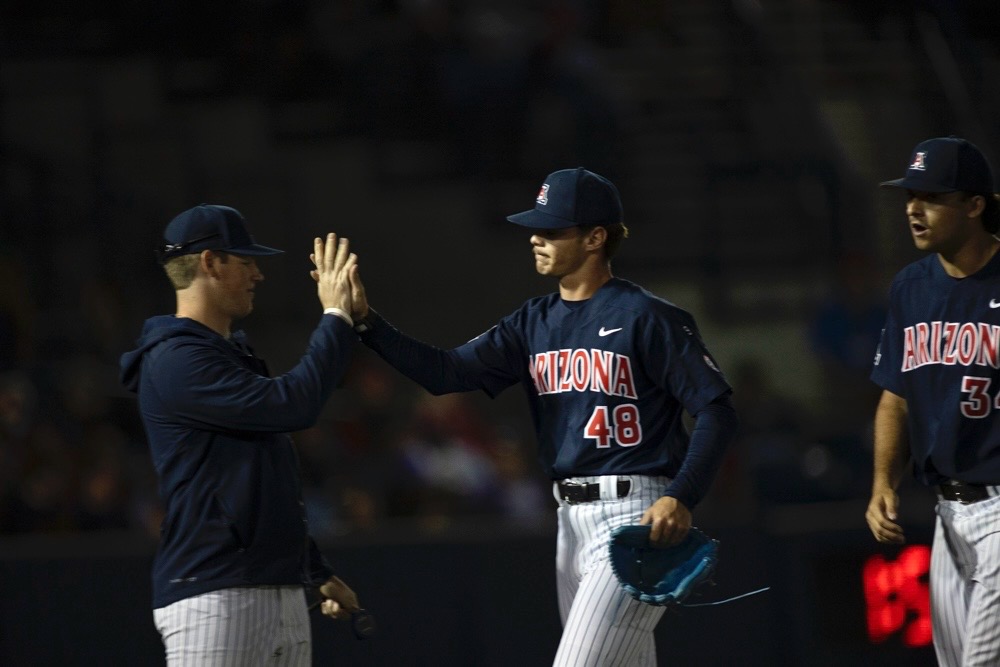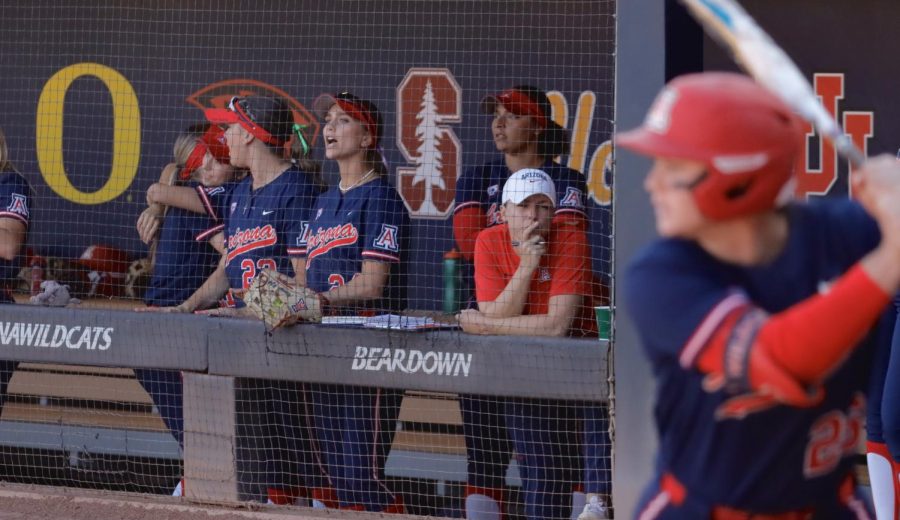The University of Arizona men’s club soccer team won the 2017 NIRSA National Tournament Open finishing 14-8-1 during its 2017 season. I sat down with head coach Erik Rhodes to discuss the season.
Daily Wildcat: To start off, if you could describe your season in one word, what would that be?
Coach Erik Rhodes: Uneven. I think it showed our guys that we had the ability to compete and win at the highest level. We beat really good teams that had good runs in the National Tournament in San Diego. And for a three or four game stretch, again in a couple of days, we just played solid soccer and won games flowing to another. Where we struggled over the rest of the season was we would have games like that on back to back weeks and not back to back days.
DW: So do you think your team was better than what your record showed?
ER: Oh absolutely, we had a lot of adversity this year. When you lose 13 guys to injury during different times, it’s a big deal. And key players. Will Martin, who is our right wing, played outstanding in the Aztec Cup. And clearly that makes a difference when you have a guy who came and didn’t play, and when he did play we were winning.
DW: Can you take me through the National Championship, and the run to the final?
ER: So first of all, with any tournament, you got to have a little bit of luck. The tournament was in Phoenix this year, and that played huge for us, because there’s just something to be said about.
Some guys would go up and come back in the same day, and slept in their own beds that night. Some stayed up with family. When you’re playing in your home, or home state, or wherever you’re comfortable, there’s just a level of comfort going into that game that makes a difference. Where we were at a disadvantage in the Regional Tournament, we were at a great advantage in the National Tournament. Reach 11, where the tournament was held, many of our guys had played there in club tournaments and high school tournaments, so very familiar with the facility.
And just going in, you could see the edge in our guys, you could see the excitement that we hadn’t had in a while. We got some players back from injury. We hadn’t played a game in about three weeks, so they were itching to play.
And I’ll tell you what, they came out. We played the University of Colorado, Colorado Springs in the first match, and scored twice in the first 15 minutes, and it was on. I mean, from that point on, for the rest of the tournament, it was the mentality I hoped for all year. Not only did we know we were better, we were going to show we were better.
Tournaments like that are always fun because there’s other teams looking at how well you’re playing to back with teams on other fields with other teams, and we scored bunches and bunches of goals. It’s kind of like golf, when you hear a cheer from another hole, kind of like everyone kind of turns and looks around.
I mean we scored, you know we won that game 4-0, and then that same day we won our night game 6-0. We turned some heads for sure that first day, with a goal differential of 10-0. It’s fun because a lot of people are going, ‘oh my gosh, you see Arizona?’ and we were doing the same thing. You know, you’re watching other games going, ‘holy cow, Texas looks good and Xavier looks good’ and all of that, it was a lot of fun.
DW: What do you think contributed to your offensive success in your first few games of the tournament?
ER: I’ll tell you what, we moved our team MVP, a guy named Karai Keil was voted our team MVP, was playing at right back for us, but due to injury I thought, ‘let’s give him a try at striker’, because he’s got enormous speed, and he’s got the mentality of never quit, and I’m going to beat whoever it is across from me.
DW: So going forward, who did you beat in the championship game and can you take me through that game?
ER: So, it’s tough to win at any level. It’s just tough to win, much less six games in three days. I mean you’re playing good teams, guys are tired and you’re making adjustments.
So our semifinal match, we played the University of North Carolina, Greensboro. A really good team; really had a lot of pace and got an early goal and hung on, hung on 1-0. Goalkeeper made some great saves. Our defense made one spectacular save off the line.
And we advanced to the championship against Texas, the Texas Longhorns. They’re a phenomenal club team. When you look at rosters around the country and how many guys, Texas fields two teams. They field a varsity club team, and a JV club team. They’ve got 57 guys rostered. You’re looking at 57 guys, so their top 11 that they put on the field are going to be pretty good.
We were actually a great matchup with them. It was a lot of fun. I told the guys at halftime, ‘this is a great college soccer game for any level.’ The possession was great. The level of play was outstanding. The intensity was there. So it was one of those, where one goal might do it. And we got an early goal.
DW: You talked about how lucky you were to have the tournament in Phoenix, and how comforting it was for a lot of the players to be playing at home. You have a lot of hometown connections, and a lot of connections on the team to Tucson, yourself included. Can you talk about those?
ER: Every day, I tell our guys, ‘Remember who we represent.’ We represent the University of Arizona. I was born and raised in Tucson. I’m a huge Wildcat fan, have been my whole life. For me to be able to coach for this school is an absolute dream come true. I love it here, so I hope that a lot of that passions translates.
And we try to build on what already exists in Tucson, which is a strong soccer city. I don’t know if a lot of people notice that, but Tucson has had great soccer for many years. I just try to take players from Salpointe and Catalina Foothills that were in great clubs and on great high school teams. And when they stay in Tucson, it gives them a great college experience as well. And it really shows that Tucson is a viable soccer community, and that Arizona is a viable soccer program that people want to be a part of. And stay home and say, ‘Club or not, I want to play for U of A.’ We’ve built that over the last three years. Guys have done a tremendous job, kind of recruiting their friends, and the kids they played against in school, which has built that into kind of a juggernaut here in Tucson over the last three years, with two conference titles, and now a national title. You know we just want to continue to grow on that, and build with our home town, and the Tucson-Phoenix connection that Arizona has.
DW: What’s next for Arizona soccer?
ER: We got invited to play in the World Club Championship, in San Antonio, Texas. The inaugural World Club Championship, which is going to be championship teams from Mexico, Canada, and the US. We’re excited to play in the inaugural one of that. Again, to see where we stand against some of the other great teams, so, that’ll be exciting for us. And then in the spring we’ll play a few exhibition matches against teams from California. We’re trying to set one up with BYU soccer, which has been a juggernaut since they left D1. And a couple of MLS teams. I can’t announce officially who yet, but we’ll have MLS teams set up for scrimmage exhibitions. And then we’ll do the FC Tucson/Phoenix Rising combination game like we did last year to wrap up the spring.
Follow Max Cohen on Twitter









